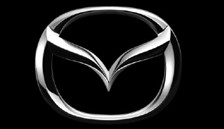A 'green' revolution is being staged by Mazda that aims to put upper medium sector company car drivers by 2015 at the wheel of models with fuel economy and emissions equivalent to today's supermini standards.
Improved aerodynamics, retuned powertrains, a concerted focus on reducing vehicle weight and the gradual introduction of new technologies such as i-stop (Smart Idling Stop System) aims to contribute to delivering better environmental and MPG performance for all Mazda vehicles.
Its Skytech system aims to achieve a 30% improvement in average fuel economy over the 2008 level for all Mazda cars sold globally by 2015, but fleets can start to expect to benefit in less than two years time.
Fuel economy and carbon dioxide emission levels are directly linked, so improvements in petrol and diesel consumption will deliver reduced CO2 emissions.
While other manufacturers press on with hybrid and alternative fuel solutions, Mazda's short term focus is to significantly improve efficiencies delivered through a traditional internal combustion engine platform.
Mazda says this is likely to be delivered at a lower investment than required in hybrid development but deliver the same CO2 and fuel economy benefits as the hybrid vehicles.
Taken together, those benefits translate into significant financial savings for fleet decision-makers and company car drivers alike in terms of vehicle operating costs, reduced fuel bills and savings in vehicle-related taxes including: capital allowances, Vehicle Excise Duty and Class 1A National Insurance contributions for businesses and benefit-in-kind tax for drivers.
Mazda fleet and remarketing director Peter Allibon said: "Our existing customers are already benefiting from the first phase of our environmental strategy.
"The first vehicles from the Skytech programme we expect to start reaching fleets in 2012. The indications are that the emission levels on some Mazda C/D segment models will drop below 100 g/km, while all models will be below 120 g/km.
"While Mazda is working behind the scenes on technological alternatives to petrol and diesel engines with research and development on hydrogen vehicles continuing apace, we expect that the internal combustion engine will remain the dominant and economic choice for fleets and company car drivers into the foreseeable future."
Looking to acquire a new vehicle? Before you do check how much it will cost to run with the Fleet News Running Cost Calculator.


















- 26/03/2010 12:53
Mazda could do with the search2drive.com Eco scheme, where drivers are given an Eco/safe driving lesson by an ADI driving instructor. yours Jeff